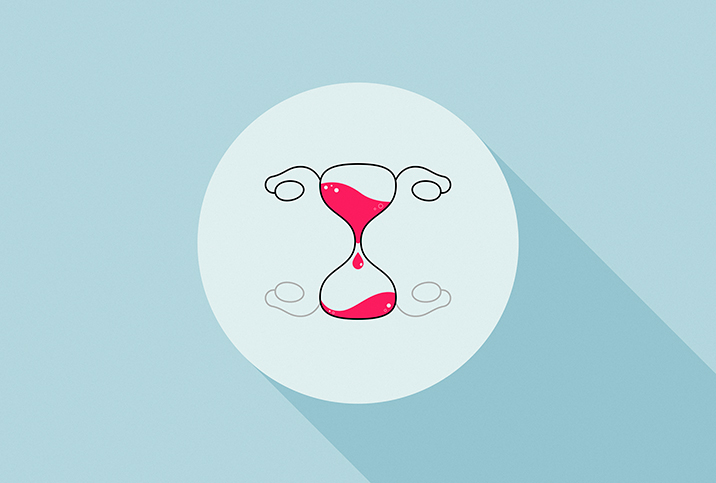The Perks of Being Postmenopausal

When Claire Hattrick, 54, founder of the menopause website Clipboard Claire, was going through menopause, it was a terrible time in her life.
"I was under nine consultants at one time and no one seemed to know what was wrong with me," she recalled.
Hattrick remembered waking up in the middle of the night with pain that went to her fingers, elbows, knees and hips, and eventually, she was unable to stand or walk.
For two years, she barely slept and was back and forth to doctors and hospital appointments.
"Looking back, this was me having panic attacks and horrendous anxiety all day and night," said Hattrick, who lives in England.
The stigma of menopause
Menopause can be difficult for women because of the stigma attached to this transitional part of life for mature women and not being able to talk about the experience. Women often don't get support or accommodations from their workplace compared to other times in a woman's life, such as pregnancy and childbirth.
"One in four people working are women in menopause. That's a huge number of women not getting adequate support," explained Mache Seibel, an OB-GYN and certified menopause practitioner in Massachusetts.
Many women feel uncomfortable talking to their healthcare provider about the symptoms they're experiencing and, therefore, suffer in silence. For Hattrick, her symptoms became so debilitating that she stopped leaving the house.
"I had gone from someone who loved the gym and went four times a week to a complete hermit. It wasn't just my physical health but my mental health that suffered, too," she explained.
Society can be particularly harsh toward aging women, favoring youth and beauty over wisdom and experience. As a result, many women feel like they have no support when they're going through menopause. Hattrick experienced this firsthand.
"Sadly, for me, I had no support network. I never really mentioned how bad I was feeling to anyone, and it was a miserable time for many years," she said.
Coming out the other side of menopause
Now Hattrick is on the other side of menopause.
"I feel back in control of my life and body again and feel happier than I have in many years. I'm really positive about the future," she said.
For many women like Hattrick, menopause represents a new chapter in life and a chance to make over their health and lifestyle. These women have gone through the difficult symptoms of menopause and lived to tell the tale.
Postmenopause represents a time for many women to focus on themselves and their own needs and personal interests. Their children are grown and out of the house and they can devote more time to themselves and their personal relationships. Seibel explained that these women are now wiser, more mature and better contributors in their jobs and society.
"It's about recognizing all that the person has accomplished and taking advantage of the opportunities and joy that come from maturity, wisdom and experience, and the freer time from the standpoint of caring for others," Seibel said.
Menopause is also a time when women can reclaim their bodies and learn to live with their body's changes.
"You can begin to reclaim your body by recognizing that it's still yours, and although in most cases you don't have a say-so in whether or not you go through menopause or when it happens, you can absolutely decide how you will live on the other side of it," said Oddesty K. Langham, M.S., L.P.C., owner of Oddesty K & Associates, a mental health therapy provider in Birmingham, Alabama.
Langham emphasized that reclaiming your body after menopause looks different for each woman and what works for some may not work for others.
Menopause can be very limiting to a lot of women because of how their symptoms disrupt their daily life. But postmenopause, women can enjoy the freedoms of life like they used to experience them.
"I rarely went out for fear of being stuck, not being able to stand for long periods of time, not being able to sit for long. Now I can go to the gym, restaurants, the theater, and enjoy life again," Hattrick explained.
A new chapter
For Hattrick, menopause represented a new chapter in life.
"Menopause has had a huge impact on my life," she said. "It's why I do the work I do today."
Nowadays, she educates women and men on the menopause experience so no one loses years of their life as she did. She also seeks to inform businesses about the needs of women going through menopause so women feel more supported in the workplace.
Hattrick represents one of the many women taking on a new lease on life after going through menopause. These women are using their experience and wisdom to make positive changes in their life and become role models in society. While menopause can be uncomfortable and, in some cases, debilitating, coming out the other side can be empowering and life-changing. For now, we can continue to listen to women's experiences of menopause and support them in their journey.




















